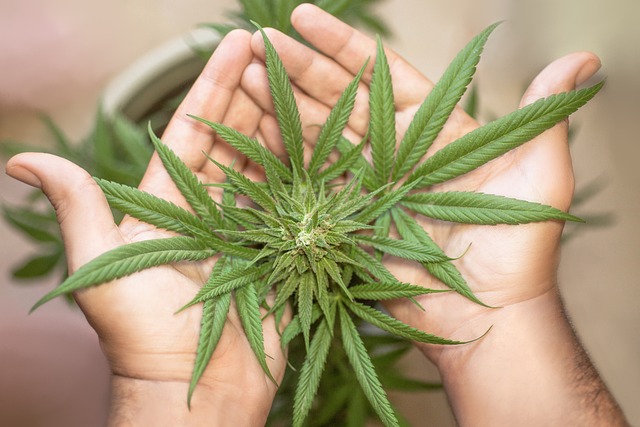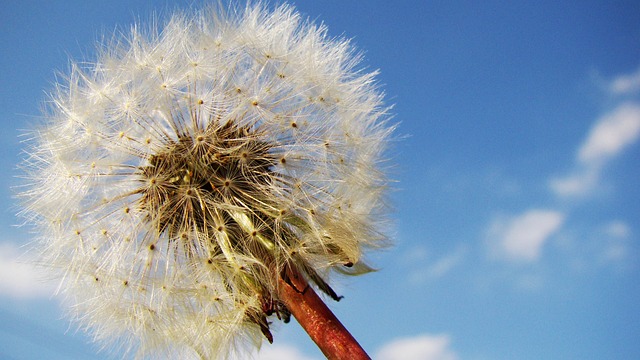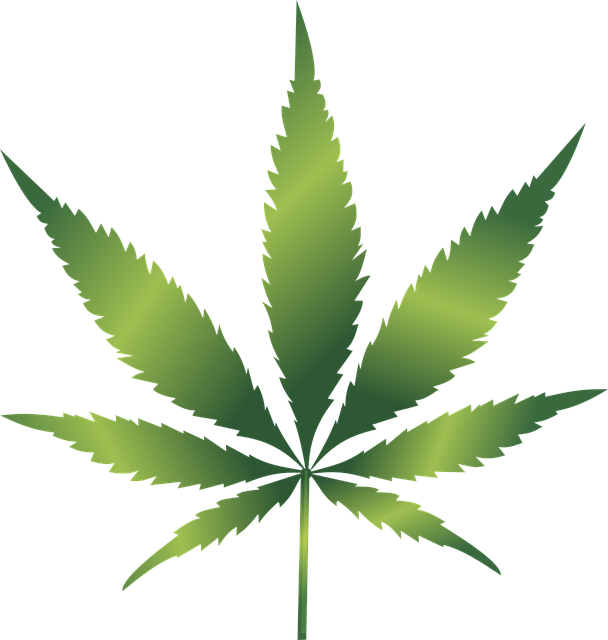THCA and CBD buds are distinct forms of cannabis with different effects and potential health benefits. THCA buds, rich in tetrahydrocannabinolic acid (THCA), offer therapeutic properties like anti-inflammatory effects without the initial psychoactive impact; however, when heated through decarboxylation, they convert into THC, which can produce a psychotropic effect. CBD buds, enriched with cannabidiol (CBD), are non-psychoactive and have been observed to help with conditions such as anxiety and seizures. The choice between THCA and CBD buds should be informed by individual health goals and preferences, as well as legal considerations. Understanding the unique properties of each, including their conversion and interaction with the endocannabinoid system, is essential for consumers to select products that align with their wellness or recreational needs.
Discover the intricate world of THCA flower, a non-psychoactive cannabinoid that’s gaining attention for its therapeutic potential and distinct properties. As an alternative to the well-known CBD bud, THCA bud offers unique benefits and effects. This article delves into the chemical structure of THCA, its impact on the body, and how it differs from CBD. We explore the nuances of harvesting and curing processes that influence THCA potency, and the entourage effect that enhances its therapeutic properties when combined with other cannabinoids. Navigate through the legal landscape surrounding these products, understand the role of terpenes in shaping their aromatic profiles, and learn about the decarboxylation process that transforms THCA into THC for those seeking psychoactive effects. Whether you’re a seasoned user or new to the cannabis scene, this comprehensive guide will help you safely and effectively consume THCA flower, offering insights into dosing, effects, and user experiences. Join us as we explore the present and future of THCA research and its significance in advancing cannabis science.
- Understanding THCA Flower and Its Distinctive Properties
- THCA Bud vs CBD Bud: A Comparative Analysis
Understanding THCA Flower and Its Distinctive Properties

THCA, or tetrahydrocannabinolic acid, is a naturally occurring compound found in the cannabis plant that has garnered attention for its potential wellness benefits and distinctive properties. Unlike its more famous counterpart, THC (tetrahydrocannabinol), THCA is non-psychoactive, meaning it doesn’t induce the traditional ‘high’ associated with cannabis consumption. This makes THCA buds an appealing alternative for individuals seeking the therapeutic effects of cannabinoids without psychoactive impairment. THCA buds are typically harvested at a specific stage of maturation when the plant’s flowers are rich in this raw acidic form, offering a different set of effects compared to its decarboxylated counterpart, THC.
In comparison to CBD (cannabidiol) buds, which are known for their calming and soothing properties, THCA buds offer a more invigorating and uplifting experience. The unique interactions of THCA with the body’s endocannabinoid system can lead to potential benefits such as anti-inflammatory, neuroprotective, and analgesic effects. These properties make THCA an object of scientific research for a variety of health conditions. Moreover, the differences between THCA buds and CBD buds lie not only in their effects but also in their chemical structures; while both compounds are cannabinoids, they interact differently with various receptors within the body, leading to distinct therapeutic profiles. Understanding these differences is crucial for consumers looking to harness the specific benefits of each type of bud for their wellness routines.
THCA Bud vs CBD Bud: A Comparative Analysis

Exploring the nuanced differences between THCA and CBD buds offers a fascinating perspective into the cannabinoid landscape of modern horticulture and pharmacology. THCA, or Tetrahydrocannabinolic Acid, is the precursor to THC (Tetrahydrocannabinol), the psychoactive compound found in cannabis. In its raw form, THCA does not exhibit psychoactive effects but is gaining attention for its potential therapeutic properties, including anti-inflammatory and pain-relieving benefits. Conversely, CBD buds are abundant in Cannabidiol, a non-psychoactive cannabinoid celebrated for its calming and medicinal attributes, such as reducing anxiety and alleviating seizures in certain cases.
The effects of THCA and CBD can be quite distinct due to their unique interactions with the body’s endocannabinoid system. While both may offer therapeutic benefits, THCA’s potential psychoactive effects become pronounced once exposed to heat, leading to the conversion into THC. This transformation is a critical consideration for consumers who prefer to avoid mind-altering substances. On the other hand, CBD buds are favored by individuals seeking wellness without the high associated with THC-containing products. The choice between THCA and CBD buds often comes down to individual needs, preferences, and legal considerations within one’s jurisdiction. Understanding the intricacies of each cannabinoid’s profile is essential for informed decision-making in the selection of cannabis products tailored to specific wellness goals or recreational experiences.
THCA flower, a precursor to the well-known CBD and THC compounds found in cannabis, presents a unique profile with distinct therapeutic and recreational potentials. This article has delved into the properties of THCA bud, distinguishing it from its cousin, the CBD bud, offering readers an informed comparison between the two. Understanding the nuances of these plants is crucial for those exploring cannabis-derived products, as each offers a different experience and set of benefits. As legal landscapes evolve and research continues to unfold, the role of THCA flower in various applications becomes increasingly apparent. For those interested in the effects of cannabinoids, discerning between THCA bud and CBD bud is essential for tailoring their use to their specific needs.
